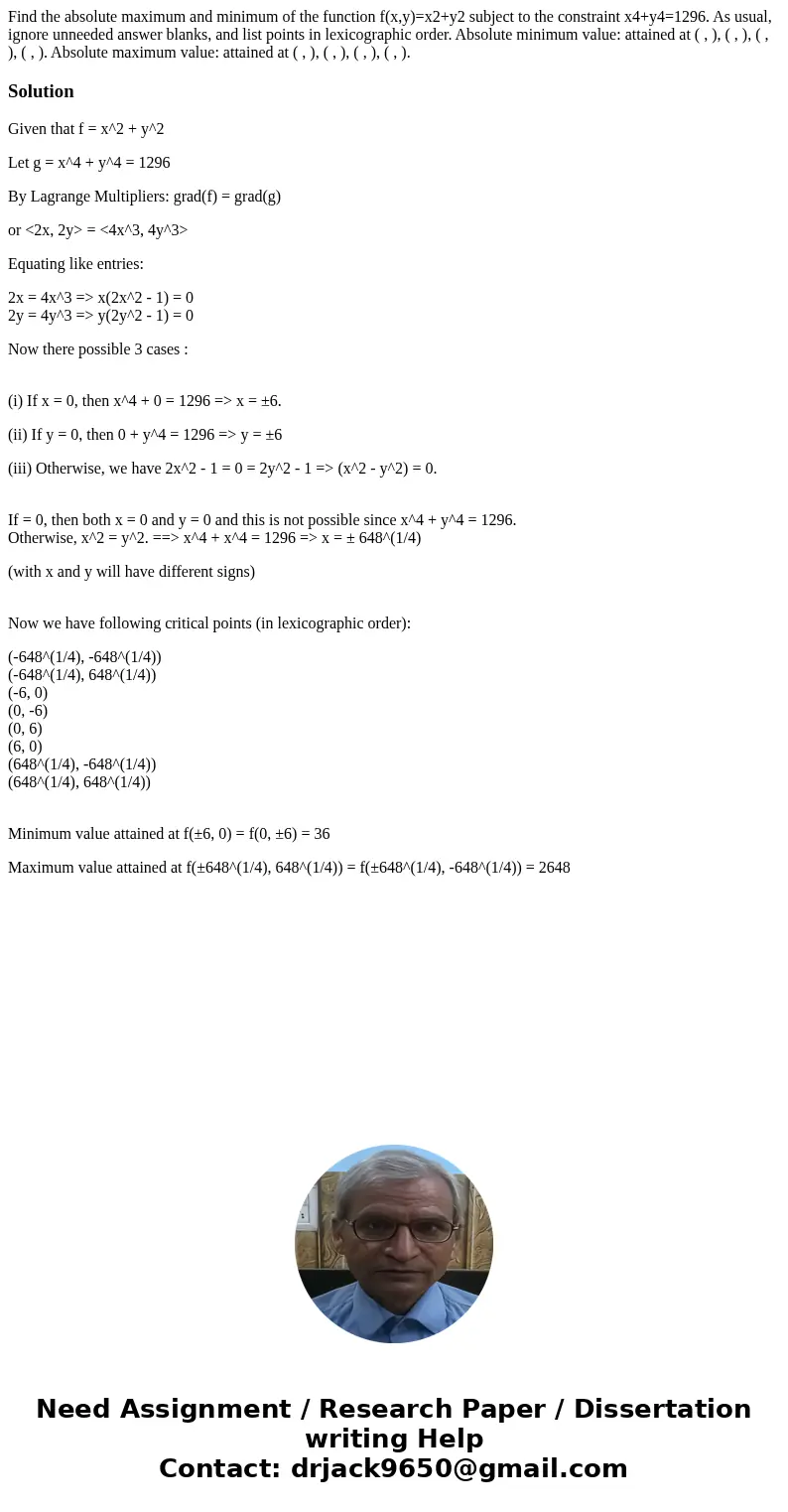Find the absolute maximum and minimum of the function fxyx2y
Find the absolute maximum and minimum of the function f(x,y)=x2+y2 subject to the constraint x4+y4=1296. As usual, ignore unneeded answer blanks, and list points in lexicographic order. Absolute minimum value: attained at ( , ), ( , ), ( , ), ( , ). Absolute maximum value: attained at ( , ), ( , ), ( , ), ( , ).
Solution
Given that f = x^2 + y^2
Let g = x^4 + y^4 = 1296
By Lagrange Multipliers: grad(f) = grad(g)
or <2x, 2y> = <4x^3, 4y^3>
Equating like entries:
2x = 4x^3 => x(2x^2 - 1) = 0
2y = 4y^3 => y(2y^2 - 1) = 0
Now there possible 3 cases :
(i) If x = 0, then x^4 + 0 = 1296 => x = ±6.
(ii) If y = 0, then 0 + y^4 = 1296 => y = ±6
(iii) Otherwise, we have 2x^2 - 1 = 0 = 2y^2 - 1 => (x^2 - y^2) = 0.
If = 0, then both x = 0 and y = 0 and this is not possible since x^4 + y^4 = 1296.
Otherwise, x^2 = y^2. ==> x^4 + x^4 = 1296 => x = ± 648^(1/4)
(with x and y will have different signs)
Now we have following critical points (in lexicographic order):
(-648^(1/4), -648^(1/4))
(-648^(1/4), 648^(1/4))
(-6, 0)
(0, -6)
(0, 6)
(6, 0)
(648^(1/4), -648^(1/4))
(648^(1/4), 648^(1/4))
Minimum value attained at f(±6, 0) = f(0, ±6) = 36
Maximum value attained at f(±648^(1/4), 648^(1/4)) = f(±648^(1/4), -648^(1/4)) = 2648

 Homework Sourse
Homework Sourse